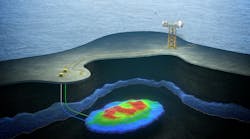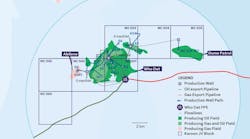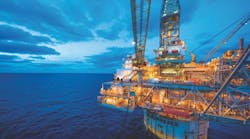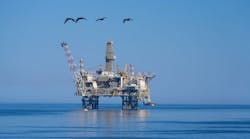Offshore staff
STAVANGER, Norway – The partners in the Troll license in the Norwegian North Sea have agreed to invest $1.97 billion in two new compressors on the Troll A platform. The new equipment should come on line in 2015.
The compressors, needed to counter reservoir pressure decline, should enable production of gas from the field to be extended through 2063.
Operator Statoil says the investment will form the final phase of the planned capacity expansion on Troll A.
“A third of all gas capacity on the Norwegian continental shelf (NCS) is produced on Troll A,” said Hans Jakob Hegge, Statoil senior VP for operations North Sea east.
The new compressors should also facilitate tie in of gas from Troll West once oil production there has come to an end.
“Troll A holds the capacity to deliver more gas than the Troll owners plan to export, and can, therefore, deliver when other fields have to withhold production,” Hegge pointed out.
Statoil says the two latest compressors should allow Troll A to produce 120 MMcm/d (4.24 bcf/d) until 2018, and 30 bcm/y (1.06 tcf/yr) until 2024. The company is also laying a new power supply cable for the Troll A auxiliary systems, to improve the platform regularity.
Troll partners are Petoro (56 %), Statoil (30.58 %), Norske Shell (8.10 %), Total E&P Norge (3.69 %), and ConocoPhillips Skandinavia (1.62 %).
Elsewhere in the Norwegian sector, Statoil has completed its internal investigation into riser incidents earlier this year that led to gas leaks on the Visund and Njord production facilities, and has submitted a response to conditions identified in Petroleum Safety Authority Norway’s report.
“The gas leaks on these two fields occurred when the pressure layer in three-layer Coflon risers on the installations was breached,” said Jannicke Nilsson, head of operations North Sea west.
“Our investigation found that these breaches on 9 and 24 April respectively could not have caused the actual risers to be ripped off, with an escalation into a major accident.”
Statoil and the PSA have identified the same immediate and underlying causes, which relate primarily to the way the group has organized servicing of flexible risers, lack of governing documentation, and the need for further training.
09/16/2011




